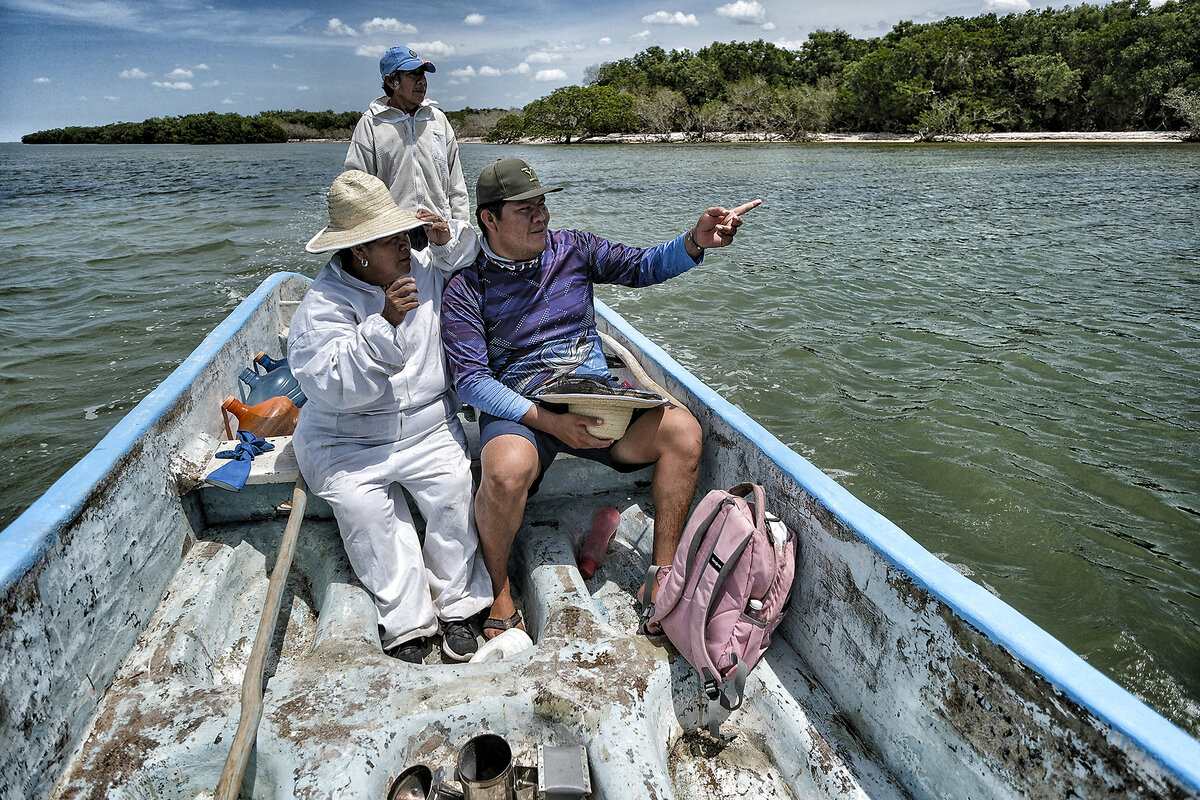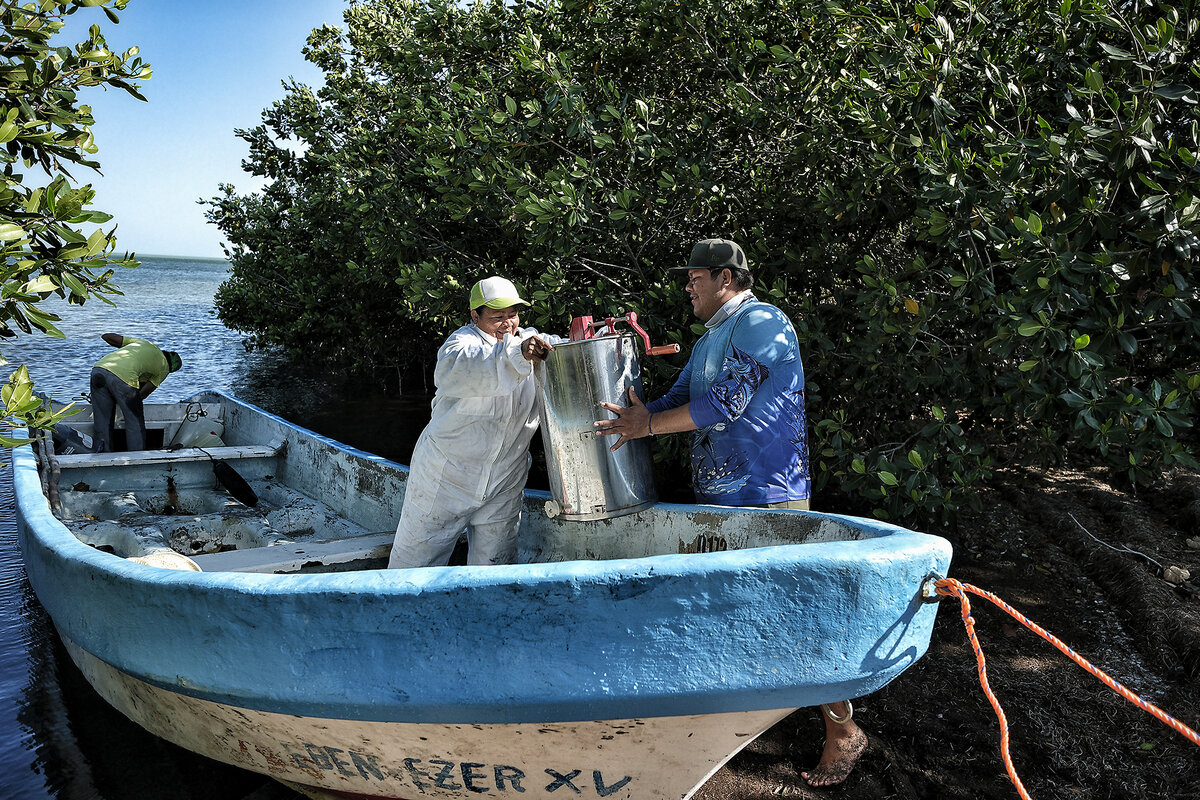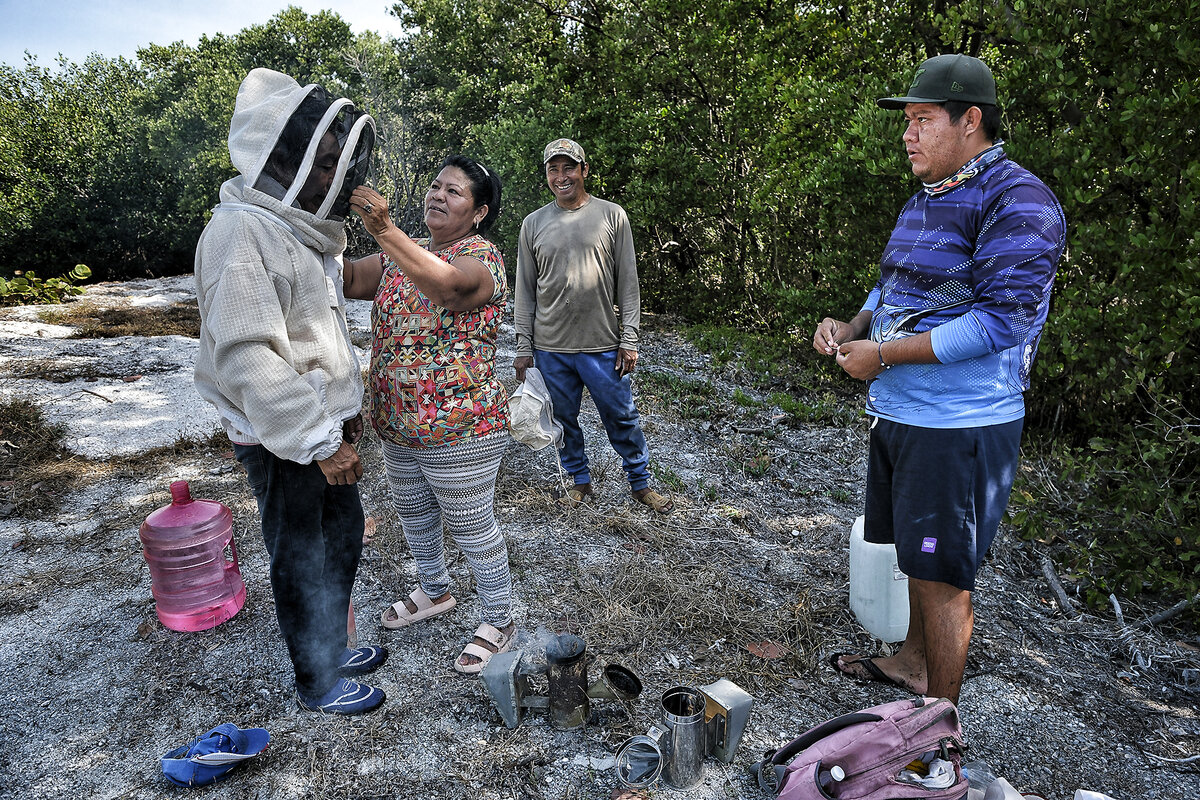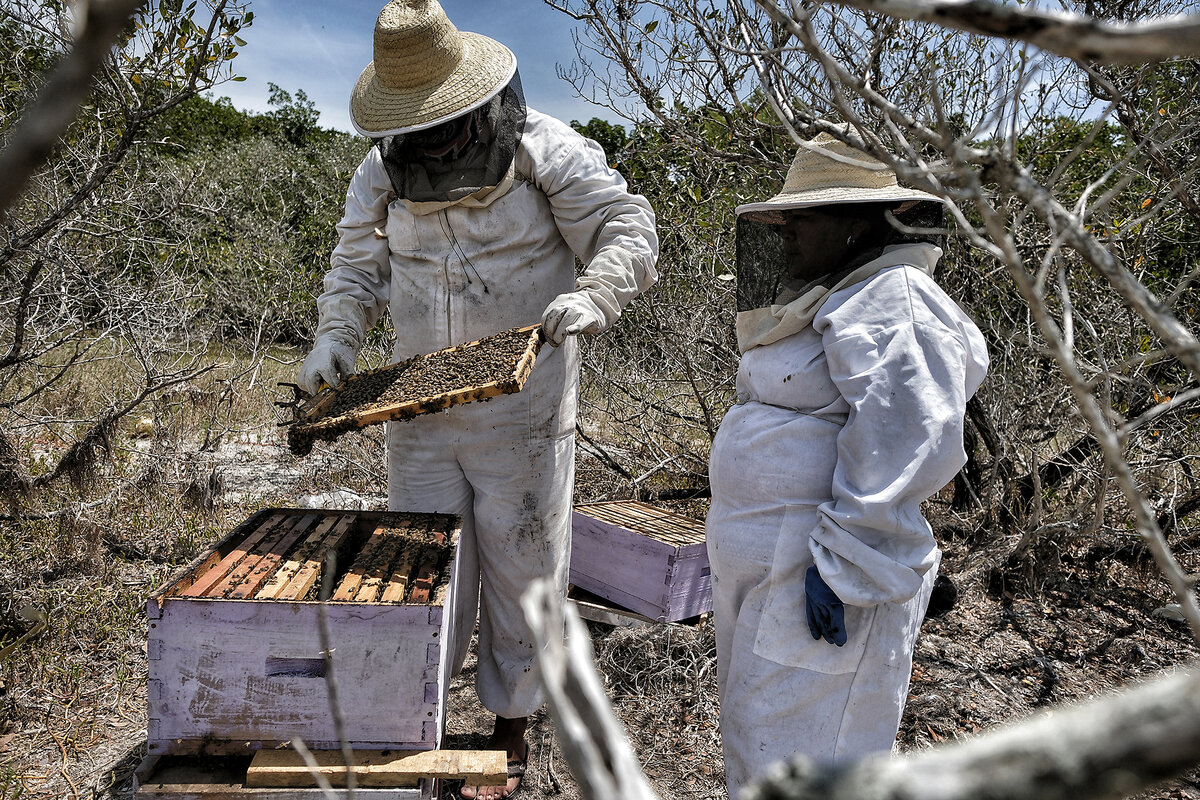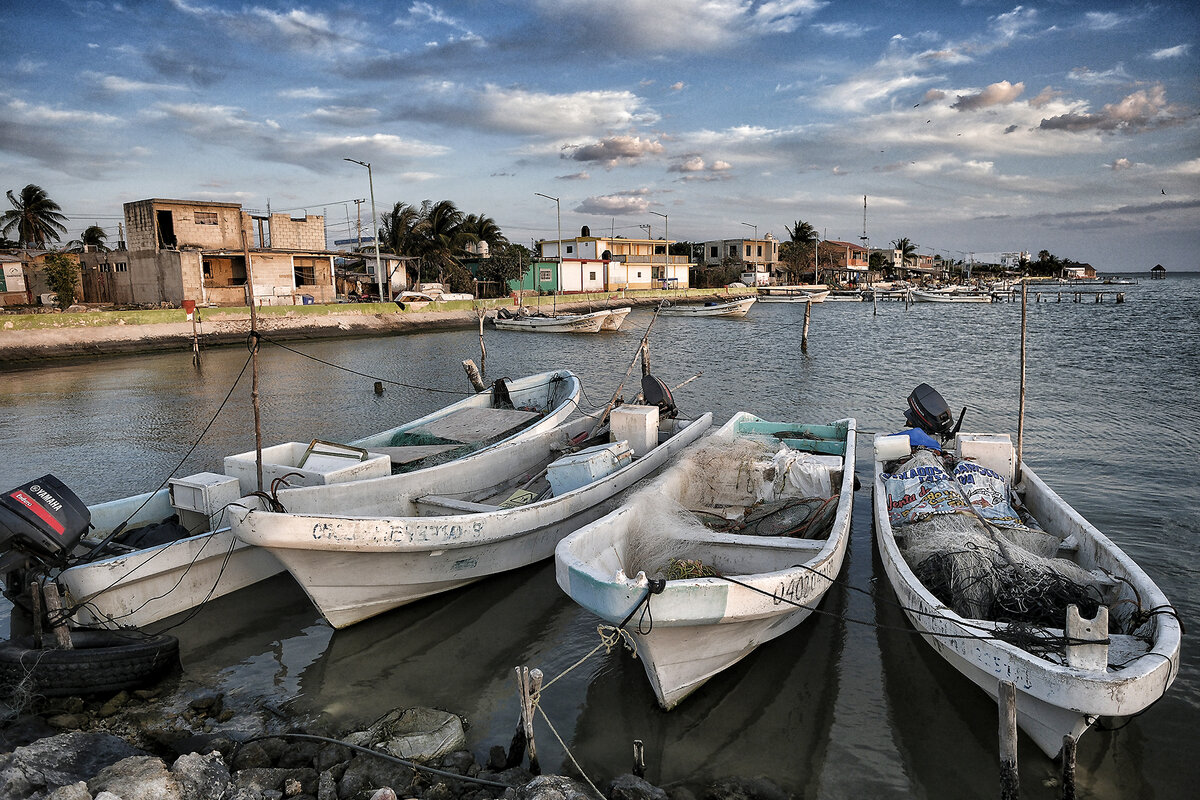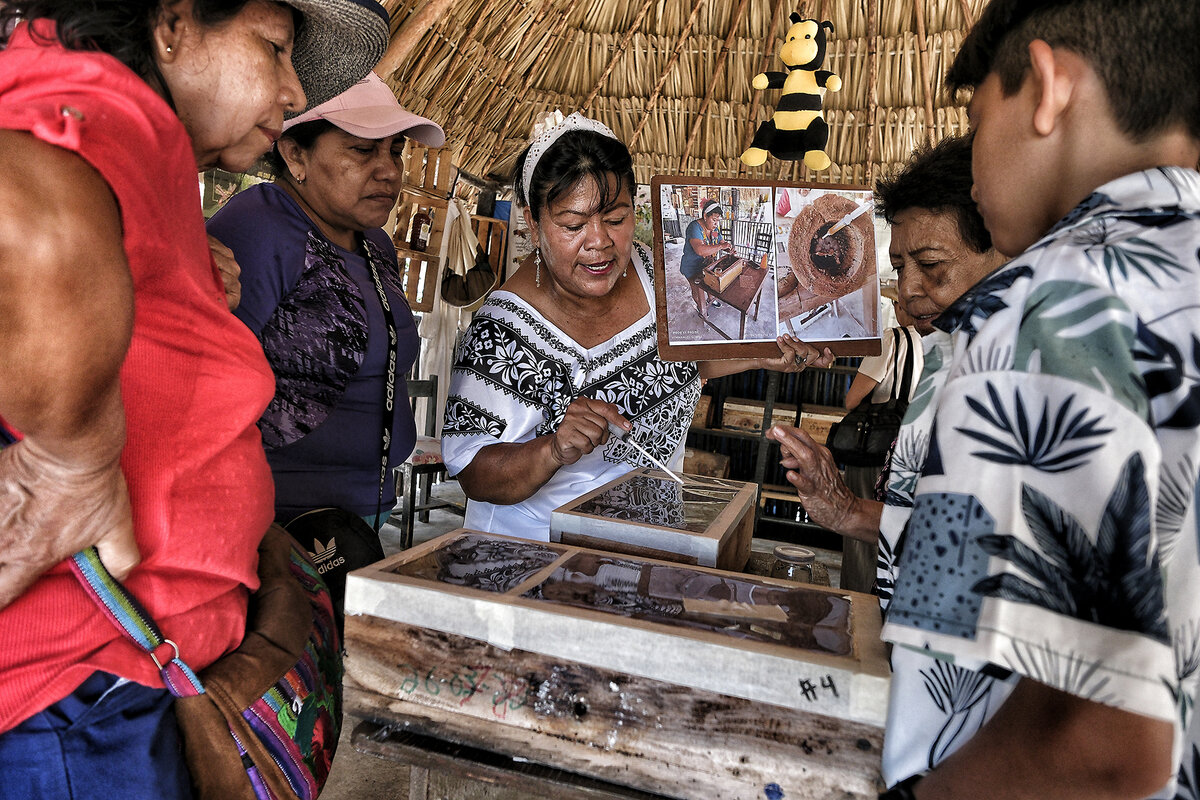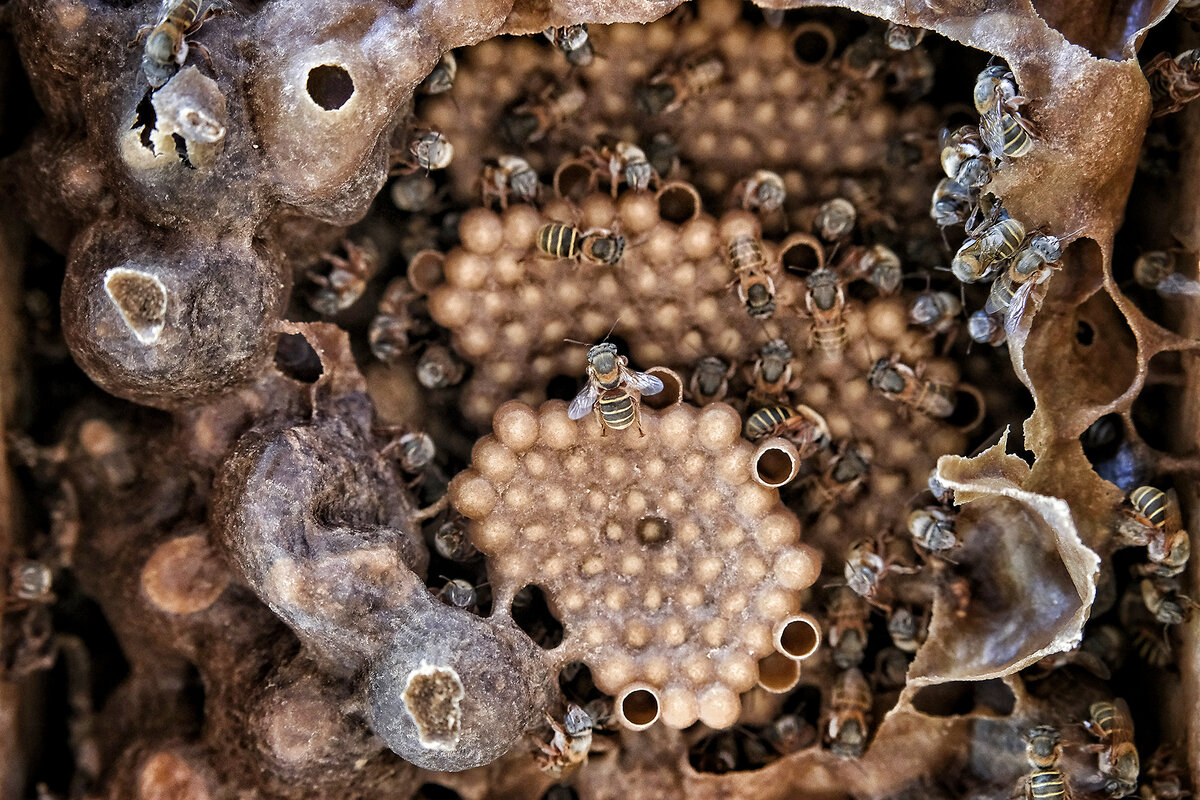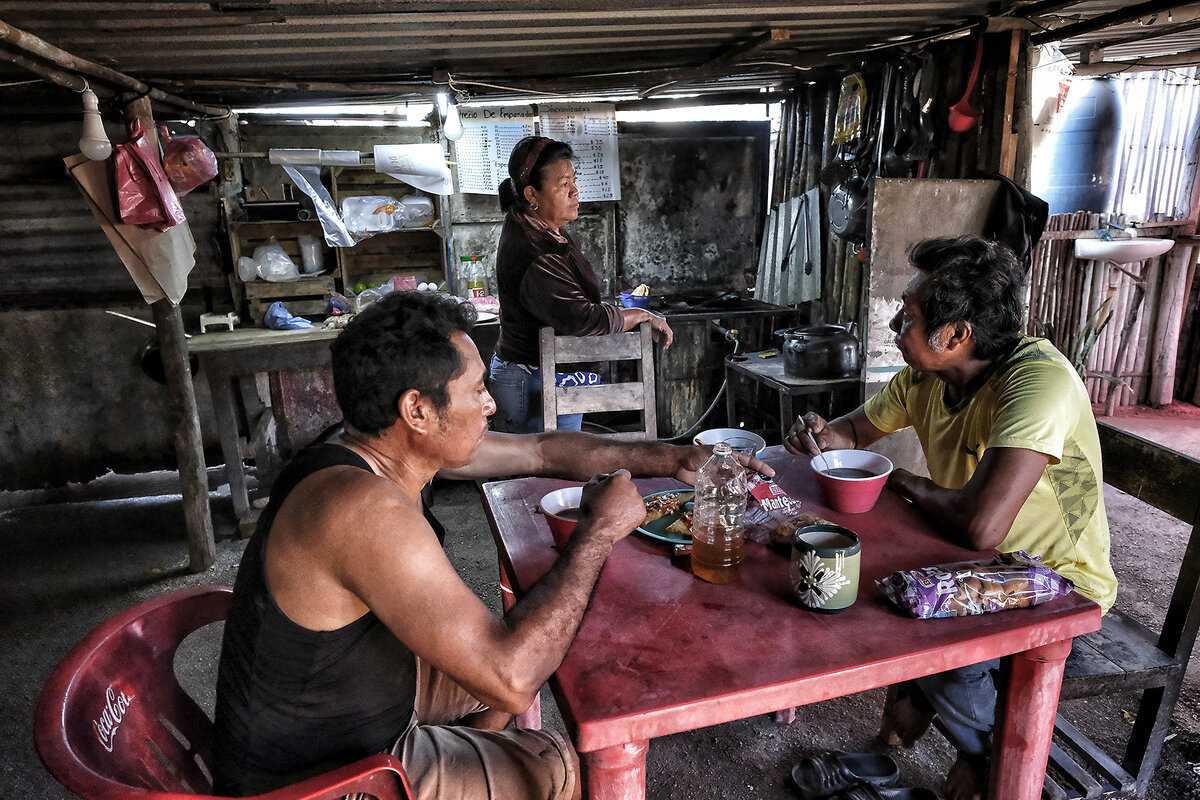In Mexico’s mangroves, protecting bees and trees is part of this family’s identity
Loading...
| Isla Arena, Mexico
The Cab family’s cluster of beehives is in a small clearing that opens up in the thick mangrove forest of Isla Arena, Mexico. Dressed in a protective suit, the family’s matriarch, Elma Guadalupe Cab Hochín, lifts the lid of one of the hives and explains that, until two years ago, she wasn’t interested in bees. Never mind that her father had been a beekeeper and that the surname Cab, coincidentally, means “bee” in Mayan.
“As a child, I was very afraid of them,” she says. “Once, I was stung and never wanted to accompany my father again.”
Today, she is a passionate beekeeper. That transformation came about after her son Santiago Francisco Tucuch Cab, an agro-ecological technician specializing in beekeeping, was injured in a motorbike accident. He could no longer tend to an experimental apiary project he had started on Isla Arena with the aim of raising bees to help pollinate the surrounding environment and protect the mangroves. ‚ÄúThe rest of the family got involved to look after his hives,‚Äù Elma says, referring to her husband, Mario Humberto G√≥mez Mart√≠n, and her youngest son, Humberto Emanuel G√≥mez Cab.¬Ý
Why We Wrote This
Mangroves that capture and store carbon dioxide are critical to combating global warming in Mexico. Through pollination, bees ensure the reproduction of mangrove trees.
Santiago, who is still recovering, had also installed a meliponarium – a wooden structure with a roof of dried palm leaves to keep out the sun and rain – in his parents’ backyard. The stingless bee species housed in the meliponarium has been native to the area since pre-Columbian times. “They are part of our identity, and we must continue to raise them so that they don’t disappear,” Elma says to a group of tourists visiting the meliponarium.
Last year, the family‚Äôs cooperative, called Honey Kaab, and four small beekeepers from the states of Campeche and Yucat√°n created the Mangrove Honey Producers Network. It allows the beekeepers to share their knowledge and experiences with conservation, and seeks out marketing channels for mangrove honey, which is slightly saltier than most other varieties.¬Ý
Mangroves are critical to combating global warming because they capture and store carbon dioxide. Through pollination, bees ensure the reproduction of mangrove trees, whose ecosystem also acts as a protective barrier for the coastline.
‚ÄúWe alone will not change the world, but any effort, no matter how small, counts,‚Äù Elma says.¬Ý
For more visual storytelling that captures communities, traditions, and cultures around the globe, visit¬ÝThe World in Pictures.







